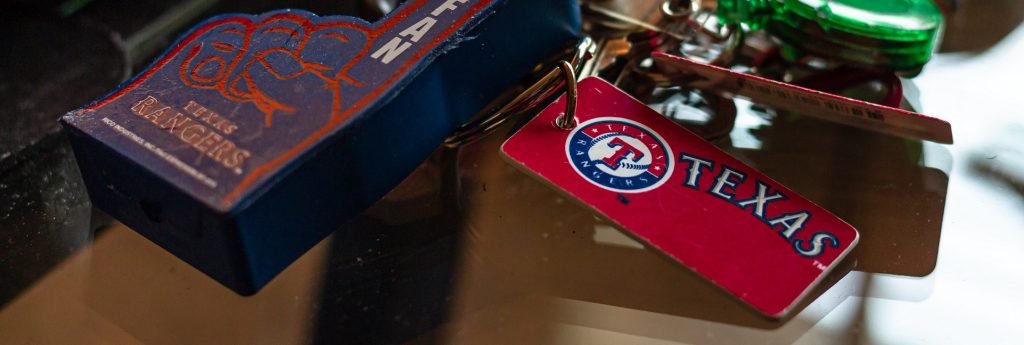
They call it the dirty deeds law. Recorders of Texas deeds may, as of July 2023, card people who show up to file home deed transfers.
Meanwhile, in Arizona, a swindler sold an ill-gotten deed to the Zillow® real estate company.
Texas is lowering the boom. The state will now have its deed recorders verify the bona fides of strangers bearing documents.
Don’t Mess With Texas Deed Recorders, Lawmakers Say
Employees of Texas counties can now demand photo identification whenever someone tries to record a deed transfer. The new law directs recording officials to turn away anyone who tries to file a deed without agreeing to show a photo ID.
Texas adopted the new law in June, and it went into effect this month. The new law applies to all recorders’ offices that accept electronic filings.
The media had a role in prompting the change. WFAA-TV of Dallas featured an investigative report on deed fraud in December 2022. For several years, a WFAA “Dirty Deeds” investigation has followed the laments of swindled homeowners — victims of deed forgery who have lost their most expensive assets.
“Dirty Deeds” Suspect Brought to Court, Fled, and Apprehended in Mississippi
An alleged deed forger slipped out of a courtroom in August 2022, later to be caught in Mississippi. This year, the suspect pleaded guilty to felony theft involving seven Dallas County homes. The swindler sold several properties off to other people — compounding the harms.
The jail term for the deed crimes was 10 years.
The prosecutor in Dallas County told the news reporters that the suspect figured all the paperwork involved with the transfer of title would hide him.
This is how many deed manipulators feel. Once they get the deeds recorded, official paperwork has been processed in the county. And the county is part of the government. So they may think they’ve cleaned up their own situation, distancing themselves from the wrongful act. Sometimes, they forge deeds on behalf of people who die — divesting the dead homeowners’ families of generational wealth.
Texas Deed Recorders Now Hold a New Level of Control
Before the new “dirty deeds” law, only counties with 800,000+ residents could verify the identities of people filing deeds. Smaller counties had no legal authority to check a document bearer’s photo ID.
Four of the counties who had the authority to check used it. Dallas County wasn’t one of them.
Personnel in Dallas and several other large, Texas counties explained why. They told news reporters they didn’t believe they were in the legal position to refuse to file any deed — at least not without specific language in the law.
This year’s new law gives them that language. Dallas County will now check photo IDs for people filing deed transfers and other documents that impact a homeowner’s rights. Phillip Clark, Dallas County’s Assistant District Attorney, thinks the new law will deter bad actors.
What about the notaries? Swindlers are still managing to manipulate them. The state has tried, so far without success, to criminalize notarizing a signature on a deed in the absence of the signer.
☛ Pending federal law dealing with remote online notarization could help states, by unifying their various current legal approaches. See The House of Representatives Said Yes to Remote Online Notaries. Senate Next, NAR Urges!
Zillow® Caught Up in Scottsdale Deed Drama

In Arizona, ABC’s Channel 15 has done similar investigations. One deed theft involved a deceased person’s Scottsdale home, which the family had to struggle mightily to recover.
The problem came to the surface when a family member couldn’t locate the estate’s home value, or the home at all, on the county assessor’s website. The home’s late owner supposedly signed the deed away a year and a half after dying. At the time of the deed transfer, the home was going through the probate process. Zillow’s name appeared on the new deed.
The family told Zillow what had happened. An imposter had sold them the home, fraudulently, out of a deceased person’s probate estate. “So we withdrew the sale and returned the deed to the family,” a Zillow representative told the news team at Arizona’s Family Investigates.
All belongings of the late owner had been taken out of the home, which was staged, photographed, and listed. Later, a police report would show that the deed thief had directed real estate agents to dispose of the home’s entire contents.
When the estate called the real estate agent who sold the place to Zillow, the chain of sales stopped. An investigation started.
California Law Helps Arizona Victims
Scottsdale-based detectives went over the path of the home title, from the deceased owner through the sale to Zillow. It turns out the trickster, a California resident, signed the deed in California. The notaries in California — in contrast to those in Arizona — must have fingerprint records. Those records helped to lead detectives to a suspect.
In December 2021, the suspect faced theft, forgery, and identity theft charges related to the deed. The identity theft charge was for pretending to be the late homeowner when making the sale. No one noticed that the suspect could not possibly have bought the home back in 1978, when the title says the late homeowner bought it. The criminal was far too young.
A representative of the Arizona Association of Realtors® told ABC News that the biggest problems giving rise to deed fraud, though, are shortcomings of the whole system. Electronic notarization, the rep argued, was driving fraud. Another part of the problem, said the rep, is that no one is checking into whether a notary on the deed is legitimate. Checking could head off the recording of faked deeds.
Some industry insiders and state policy makers want new laws. They want fingerprint requirements similar to California’s. They want notarizations checked out before deed transfers are filed in the public records.
On the Alert List? Check With Your County.
Like many counties across the country, Maricopa County, Arizona now offers automatic alerts to homeowners for deed claims. Your county might, too.
An automated message goes to the homeowner if there’s activity on the deed. This way, the homeowner knows, and can notify law enforcement. Acting quickly, investigators might be able to prevent a wrongdoer from reconveying the deed to someone else.
Where available, an automatic deed alert system is worth signing up for. It could help, and it sure can’t hurt.
Supporting References
Tanya Eiserer and Mark Smith for WFAA-TV (Dallas – Fort Worth) via WFAA.com: New “Dirty Deeds” Law Allows Clerks Statewide to Demand Photo ID for Property Transfers (Jun. 21, 2023).
Tanya Eiserer for WFAA-TV (Dallas – Fort Worth) via WFAA.com: “Dirty Deeds” Suspect Who Fled Court Hearing Captured in Mississippi (Feb. 27, 2023).
Ashley Paredez for ABC 15 KNXV in Phoenix, Arizona (published via Scripps Media, Inc.): Arizona Homeowners Falling Victim to Deed Fraud (Jun. 2, 2023; updated Jun. 3, 2023).
Morgan Loew, Cody Lillich, and Gilbert Zermeño for KTVK/KPHO, produced through Arizona’s Family Investigates on 3TV/CBS 5 (Scottsdale, Arizona) via AZFamily.com: Criminals Using Deed Fraud, Identity Theft to Steal Arizona Homes (updated May. 23, 2022).
And as linked.
More on related topics: Deed theft, Texas title theft
Photo credits: Terrance Barksdale and Alex Staudinger, via Pexels.
